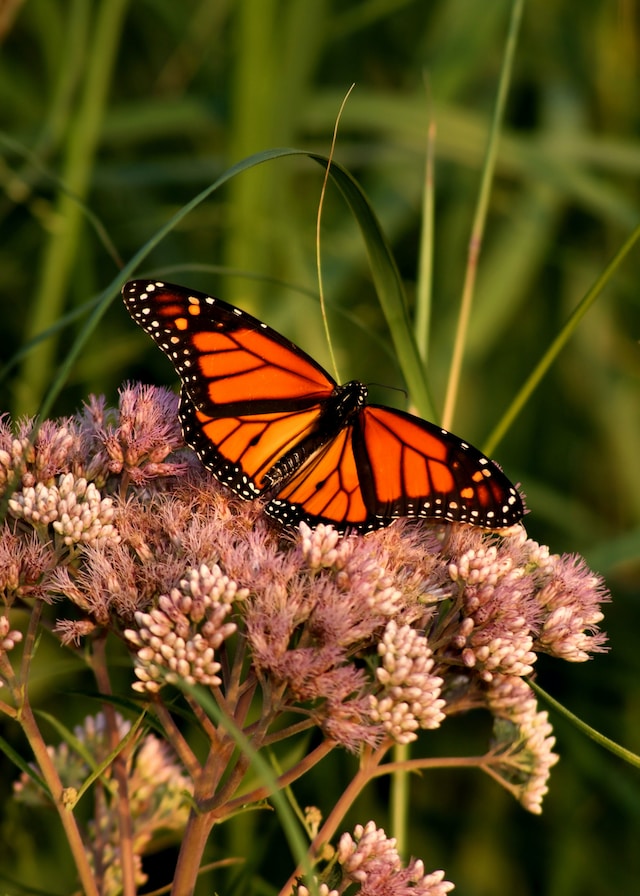Summary | Excerpt | Reviews | Beyond the Book | Read-Alikes | Genres & Themes | Author Bio

How Road Ecology Is Shaping the Future of Our Planet
by Ben GoldfarbThis article relates to Crossings
 As Ben Goldfarb notes in Crossings: How Road Ecology Is Shaping the Future of Our Planet, we're in the midst of an insect apocalypse. It's largely agreed now that our planet is experiencing a sixth mass extinction event, and insect species are among the most imperiled.
As Ben Goldfarb notes in Crossings: How Road Ecology Is Shaping the Future of Our Planet, we're in the midst of an insect apocalypse. It's largely agreed now that our planet is experiencing a sixth mass extinction event, and insect species are among the most imperiled.
Habitat loss is a critical component, driven by road construction and its attendant development, as Goldfarb explores in his book. But for some species, he observes, roads have become an important albeit perilous refuge—monarch butterflies, for example, migrate and survive along Midwestern roadsides, one of the few places where the native prairie plants they rely on for food and nesting still survive.
Prairie used to cover millions of acres from Texas to the Dakotas, and from the front range of the Rockies to the Great Lakes. Multiple types of prairie evolved with different amounts of rainfall and other climatic conditions, with the most iconic being the tallgrass prairie that stretched across what is now Illinois, Iowa, Missouri, and parts of Kansas and Nebraska.
The rich soils of this land were black gold for early American farmers, and when John Deere invented a plow that could break through the sod in 1837, the prairies succumbed to agriculture. Consequently, millions of acres fed by millions of years of organic matter were turned into cropland over a relatively short space of time.
As habitat loss became more widespread, Americans began to notice that well-known species like monarch butterflies needed native plants to survive. Ironically, roadsides, which invited agricultural equipment and development, became one of their most valuable refuges. "Precarious strips of native plants—tickseed and anemone, switchgrass and beargrass, thimbleweed and snakeroot and bluebell and snow-on-the-mountain—clung to highwaysides like stubble on an unshaved cheek, offering succor to six-legged refugees," Goldfarb explains.
The cost and effort required to "maintain" roadsides with mowing and pesticides were prohibitive, so many state governments and transportation departments allowed them to re-wild over time. It has also taken intentional action, however, to ensure prairie species can thrive. During the Obama administration, the federal government and some Midwestern states agreed to "protect, plant and manage pollinator habitats" along I-35, an interstate that runs in line with monarchs' migration routes. These butterflies only lay their eggs on milkweeds, so a conscious choice was made to preserve and promote the growth of these plants.
But roadsides alone won't be enough to save monarchs or other endangered species—roads themselves are too dangerous and polluted to be the sole ecosystem supports we need. In recent years, more Americans have realized the value of growing native plants in another common disturbed landscape: suburban sprawl. Planting prairie species in home gardens has emerged as a crucial lifeline for pollinators, birds, and other animals. As Doug Tallamy, an entomologist and leading proponent of native plant gardening, succinctly states, "All plants are not created equal, particularly in their ability to support wildlife."
Organizations such as Wild Ones have sprung up around the country to assist in plant sales, seed swaps, and informational sessions for gardeners. Larger organizations such as the National Wildlife Federation have also made strides, for example, with the Mayors' Monarch Pledge, which encourages and recognizes communities that make improvements to monarch habitats.
Photogenic species like the monarch butterfly help to catalyze awareness of habitat loss and the importance of native plants, but they can't carry the burden alone. As the climate crisis continues to worsen, humans need to embrace ecosystems that support all species, because without the others, Homo sapiens won't survive either.
Photo of monarch butterfly at Lake Minnetonka, Minnesota by rod m, via Unsplash
Filed under Nature and the Environment
![]() This "beyond the book article" relates to Crossings. It originally ran in September 2023 and has been updated for the
September 2024 paperback edition.
Go to magazine.
This "beyond the book article" relates to Crossings. It originally ran in September 2023 and has been updated for the
September 2024 paperback edition.
Go to magazine.
Your guide toexceptional books
BookBrowse seeks out and recommends the best in contemporary fiction and nonfiction—books that not only engage and entertain but also deepen our understanding of ourselves and the world around us.